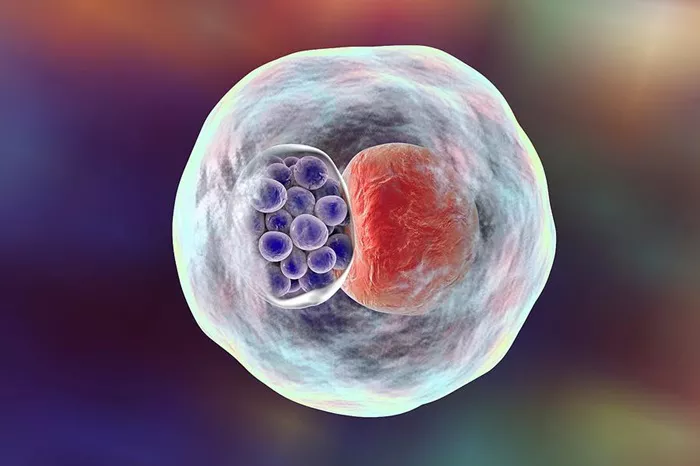Chlamydia is one of the most prevalent sexually transmitted diseases (STDs) globally, affecting millions of individuals each year. While the physical symptoms and health implications of chlamydia are well-documented, the mental and emotional toll it can take is often overlooked. This article delves into how chlamydia can affect individuals mentally, exploring the psychological consequences and the broader impacts on mental health.
Understanding Chlamydia
What is Chlamydia?
Chlamydia is caused by the bacterium Chlamydia trachomatis. It is a highly contagious infection transmitted through sexual contact. The infection can occur in the genital tract, throat, or rectum. Many individuals with chlamydia are asymptomatic, meaning they do not exhibit any noticeable symptoms, which can lead to the unintentional spread of the disease.
Symptoms and Diagnosis
For those who do experience symptoms, they may include abnormal genital discharge, burning sensation during urination, pain during intercourse, and in severe cases, pelvic inflammatory disease (PID) in women and epididymitis in men. Diagnosis typically involves a urine test or a swab from the affected area.
Treatment
Chlamydia is treatable with antibiotics, with azithromycin and doxycycline being the most commonly prescribed. Early treatment is crucial to prevent complications, but even with effective treatment, the emotional and mental ramifications can be significant.
The Psychological Impact of Chlamydia
Initial Diagnosis: Shock and Anxiety
The moment of diagnosis can be a profound shock. For many, receiving a positive test result for an STD like chlamydia triggers immediate anxiety and distress. The stigma associated with STDs can exacerbate these feelings, leading to a sense of shame and embarrassment.
Fear of Long-Term Health Consequences
While chlamydia is curable, the potential for long-term health consequences if left untreated, such as infertility or chronic pain, can be a significant source of anxiety. This fear can linger even after successful treatment, affecting one’s mental well-being.
Stigma and Social Isolation
The stigma surrounding STDs remains pervasive. Many individuals feel a sense of social isolation and fear judgment from others, including friends, family, and potential sexual partners. This stigma can lead to a reluctance to disclose their diagnosis, further compounding feelings of isolation and loneliness.
Emotional Responses to Chlamydia
Depression and Low Self-Esteem
The emotional burden of chlamydia can lead to depression. Individuals may struggle with feelings of worthlessness and low self-esteem, particularly if they believe their diagnosis reflects poorly on their character or sexual behavior. These feelings can be especially intense in cases where the infection was contracted from a trusted partner, leading to a sense of betrayal.
Anger and Blame
Anger is another common emotional response. This anger can be directed at oneself for perceived negligence, at the partner from whom they contracted the infection, or at the broader societal attitudes that perpetuate stigma. Blame, whether self-directed or towards others, can strain relationships and hinder emotional healing.
Guilt and Shame
Guilt and shame are closely related but distinct emotions that often accompany a chlamydia diagnosis. Guilt may stem from the belief that one has acted irresponsibly, potentially endangering the health of others. Shame, on the other hand, is a deeper feeling of being inherently flawed or dirty because of the diagnosis.
Impact on Relationships
Romantic and Sexual Relationships
Chlamydia can have a profound impact on romantic and sexual relationships. The need to disclose an STD diagnosis to a partner can be a daunting prospect, fraught with fear of rejection or judgment. Even in supportive relationships, the dynamics may shift, with partners needing to navigate trust issues and concerns about sexual health.
Family Dynamics
The impact on family dynamics can be significant, especially for younger individuals who may rely on parental support for medical treatment. The need to disclose an STD diagnosis to family members can be stressful, and the reactions of family members can either provide crucial support or add to the emotional burden.
See Also: How Many Sets Should You Do for Strength Training?
Friendship Networks
Friendships can also be affected, as individuals may withdraw from social interactions due to feelings of shame or fear of judgment. Conversely, supportive friendships can play a vital role in emotional recovery, providing a safe space for discussion and empathy.
Mental Health Consequences
Anxiety Disorders
The ongoing stress and worry about one’s health and the social implications of chlamydia can lead to anxiety disorders. Generalized anxiety disorder (GAD) or social anxiety disorder may develop or be exacerbated by the constant fear of judgment and the pressure of managing the infection and its consequences.
Depressive Disorders
Depression is a common mental health consequence of STDs like chlamydia. Persistent feelings of sadness, hopelessness, and a lack of interest in previously enjoyed activities can interfere with daily life. The interplay between depression and chlamydia can create a vicious cycle, where the emotional distress worsens the individual’s overall health and well-being.
Post-Traumatic Stress Disorder (PTSD)
In some cases, the experience of contracting an STD, especially if associated with a traumatic event such as sexual assault, can lead to PTSD. Symptoms may include flashbacks, nightmares, severe anxiety, and uncontrollable thoughts about the traumatic event.
Coping Mechanisms and Support
Seeking Professional Help
Professional mental health support is crucial for individuals struggling with the psychological impact of chlamydia. Therapy, whether individual or group, can provide a safe space to process emotions and develop coping strategies. Cognitive-behavioral therapy (CBT) is particularly effective in addressing anxiety and depression related to health issues.
Education and Awareness
Educating oneself about chlamydia and STDs can reduce fear and misinformation. Understanding that chlamydia is a common, treatable infection can help alleviate some of the associated stigma and shame. Public health campaigns and resources from reputable health organizations can provide valuable information.
Building a Support Network
Having a strong support network is vital. Friends, family, and support groups can offer emotional support and practical advice. Connecting with others who have had similar experiences can reduce feelings of isolation and provide a sense of community.
Self-Care and Wellness
Practicing self-care and focusing on overall wellness can mitigate some of the mental health impacts of chlamydia. Regular exercise, a healthy diet, adequate sleep, and mindfulness practices such as meditation and yoga can improve mental health and resilience.
Long-Term Strategies for Mental Health and Well-Being
Regular Mental Health Check-Ins
Regular check-ins with a mental health professional can help monitor and address any ongoing emotional or psychological issues. This proactive approach ensures that mental health is given the same priority as physical health.
Open Communication
Fostering open communication about sexual health with partners, friends, and family can reduce the stigma associated with STDs. Honest conversations can lead to better understanding and support, reducing feelings of isolation and shame.
Advocacy and Education
Becoming an advocate for sexual health education and STD awareness can be empowering. Sharing personal experiences and educating others can help reduce stigma and promote a more informed and supportive community.
Resilience Building
Developing resilience through coping strategies and positive thinking can help individuals navigate the emotional challenges associated with chlamydia. Resilience training programs and workshops can provide tools for managing stress and building emotional strength.
Conclusion
While chlamydia is primarily known for its physical health implications, its mental and emotional impact is equally significant. The initial shock of diagnosis, compounded by stigma, fear, and relationship dynamics, can lead to a range of psychological responses, including anxiety, depression, and PTSD. Addressing these mental health challenges requires a multifaceted approach, involving professional support, education, a strong support network, and a focus on overall well-being. By recognizing and addressing the mental impact of chlamydia, individuals can better navigate their emotional journey and achieve a more holistic sense of health and well-being.
[inline_related_posts title=”You Might Be Interested In” title_align=”left” style=”list” number=”6″ align=”none” ids=”10157,10096,9943″ by=”categories” orderby=”rand” order=”DESC” hide_thumb=”no” thumb_right=”no” views=”no” date=”yes” grid_columns=”2″ post_type=”” tax=””]


































